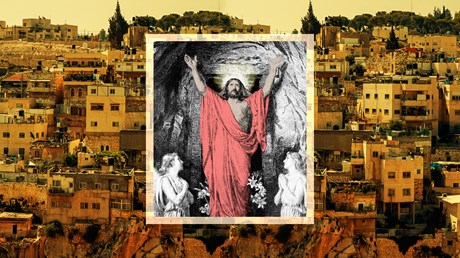The dawning of a new kingdom heralds hope for reconciliation and relief from oppression.

During Holy Week, we consider how the Cross reconciles humanity with God. But for Palestinian Christians living in Israel who face oppression and discrimination on a regular basis, the Resurrection and its power to reconcile Jews and Gentiles offers them the greatest hope.
“The resurrection of Christ is the ultimate proof that the world can be changed,” said Palestinian Israeli theologian Yohanna Katanacho.
Palestinian Christians celebrate Easter on both Eastern and Western dates. Approximately 160,000 Palestinian Christians currently hold Israeli citizenship, and around a third of them live in the West Bank and Gaza.
Katanacho was born in 1967 and grew up amid the decades-long Arab-Israeli war that stoked hatred and enmity between Jews and Arabs. The former proponent of atheism accepted Christ at the age of 19 and is now the academic dean and biblical studies professor at Nazareth Evangelical College in Israel.
Katanacho’s book, Reading the Gospel of John through Palestinian Eyes, explores John’s reinterpretations of traditional Judaism in light of Christ. “John sees that having Christ is the biggest blessing ever, and without Christ, we have nothing (John 3:36). As a result, space, time, history, identity, and land are reread in light of the centrality of Christ,” Katanacho said.
Global books editor Geethanjali Tupps spoke with Katanacho about the significance of the Easter resurrection for Palestinian believers and how his reading of John’s gospel challenges the global church.
How did you become a believer?
My family was Roman Catholic, but I became an atheist as a teenager. When I was 19, I had a life-changing experience with God. At 3 a.m., I heard the sound ...
from Christianity Today Magazine
Umn ministry


.gif)

.gif)
.gif)
